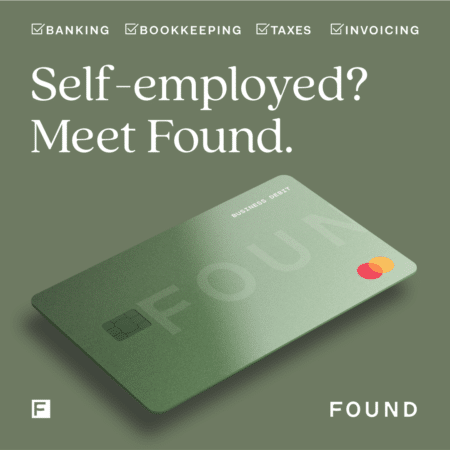Small businesses are the cornerstone of the economy, both nationally and globally. There are literally millions of them, and new ventures are being launched every day, as wannabe entrepreneurs test the waters with their latest commercial concept.
If you’ve always wondered how to start your own business, but you’ve been stifled by a lack of knowledge and experience in this area, fear not! With the help of this guide, the path ahead will become clearer, and you can begin your intrepid adventure into business with a clear destination in mind.
There are numerous benefits that come from starting a small business from home. Perhaps you’re eager to take total autonomy over your career, rather than all of your hard work just going towards the success of an enterprise that belongs to someone else. Maybe you’re focused on maximizing your income, rather than treading water with a stagnant salary in an existing organization. You might even have a killer idea for a commercial endeavor that no one else has capitalized on before, and which you want to bring to market so that long-standing problems can be resolved through your ingenuity. All of these positives should be enough to motivate you to convince you that it’s worth learning how to start a small business, although it’s not all good news. On the flip side, the simple fact is that starting a small business is no easy feat. A huge investment in time and money is required for success, not to mention considerable amounts of blood, sweat and tears, both figurative and literal in some cases. And even if you put in the hard graft, you can’t escape the fact that fate and luck also have a part to play. Economic pressures and market trends that are outside of your control could scupper your small business before it has even set sail. There are also all sorts of hoops to jump through and obstacles to overcome in order to even begin trading, so the lengthy planning and preparation stage can feel like an endurance test. So before taking the plunge into entrepreneurship, it’s important that you weigh up all pros and cons carefully, and most importantly think about why you want to start a business in the first place. Are you looking to go all-in on a new project, or do you want a side hustle to supplement your income? Being certain about your motives and aims early on is necessary. Before starting a small business, you need to select an industry to enter into, and establish that the industry you choose is right for you. As part of this, you need to explore the type of product or service your company will provide, and who your target customers are. Are they likely to buy what you’re selling? Researching the audience rigorously is vital, as it will let you avoid all sorts of missteps when you’re dealing with development of product or service ideas later on. Also consider potential competitors in the local area, and think about how you can make yourself stand out from them. Customer and competitor research are the yin and yang of business-building, and neither can be completed successfully without the other. Additionally, it’s important that whatever endeavor you decide on aligns with both personal goals, as well as market demand. You have to be realistic, while still being attuned to what drives and inspires you, or else your nascent company will be DOA. To start a small business, you will need funding. Consider all your options when it comes to sourcing money, from personal savings or investments to loans and grants. You could even approach investors if that’s an option available to you. In order to get the capital you need, it’s helpful to create a financial plan for the first few years of running your business so that you have an idea of how much is needed upfront, and what other costs might come up in the future. This is something you can present to prospective lenders and investors to back up any specific requests you make. It will also show that you are serious about doing your due diligence, rather than just plucking a figure from the air and hoping for the best. As part of organizing your finances, make sure to open a separate business bank account specifically for your new venture, as this helps keep track of spending, and also makes your operation look more professional. Separating your personal finances from those used solely by the company is crucial, and shouldn’t be something you leave until later on. So how much does it cost to start a business? Well, it’s certainly possible to start a business with as little as $1,000 or even $500, but this only really applies to the smallest scale commercial schemes. Anything that requires the hiring of other team members, the creation of a website, the renting of business premises and so forth will see this figure skyrocket. Here is a simple formula calculating break even costs: Break-even point = Fixed cost ÷ Contribution margin
Dreams to Dollars: The Ups and Downs of Starting Your Own Business
Appreciating the Effort Involved
Know Before You Go: Early Aspects of Preparation

Money Talks: Tips for Securing Financing
Other Money Management Moves to Make
Calculating Costs
What? Dollar Amount $ Fixed Costs $1000 Variable Costs $0.75 per loaf Price Per Loaf of Bread $3.5 Break Even Formula $1000/($3.50 – $0.75)
$1000/($3.50 – $0.75) = 363.64 loaves of bread
Legally Sound Strategies for Establishing a New Company
Before launching your small business, you will need to make sure that it is legally established and compliant with all relevant laws.
This includes registering the company in your state or country, obtaining an Employer Identification Number (EIN) from the IRS, and choosing a name for the business.
Depending on where you are located, there might be other steps involved too, as each region has its own rules and regulations to follow, and you can’t afford to overlook them as an aspiring entrepreneur. For instance, are you setting up a sole proprietorship or LLC? Getting to grips with these concepts as a must.
To sidestep potential legal pitfalls, seek out professional guidance in order to ensure full compliance. That way you can be certain that every piece of paperwork you file is filled out accurately, and that you don’t forget to apply for crucial elements like local business licenses or insurance.
How to Choose a Name for Your Business
We just touched on the process of picking a name for your company, and this is worth expanding on. The key is to make sure that the name you select clearly conveys what type of service or product you are offering.

- Try to keep things simple. You don’t want potential customers getting confused about who you are or what you offer.
- Choose a name that isn’t already in use by another company, as this could lead to legal issues down the line so always check availability first. The trademark database is ideal for this.
- Use online tools such as word generators if stuck for name-based inspiration. They can help spark an idea if you’re running on empty.
Blueprints and Building Blocks: Crafting an Effective Business Plan
A business plan is a key document for any start-up, as it gives you the roadmap to success. This should include all the information about your company, such as its mission statement, an overview of products or services you intend to offer, market analysis outlining customer needs and target demographics, sales strategies and financial projections.
Additionally, consider writing out actionable plans on how to achieve goals within certain time frames. This will help keep you focused when times get tough, and is also something that investors will look for when deciding whether or not to support your small firm. Using a business plan template will simplify this process.
Download our FREE one page business plan template + guide
Once complete, be sure to carefully review your business plan before submitting it. If you’re looking out for minor details at this point, it will let you overcome major hurdles more easily as you get the ball rolling.
Crunch the Numbers, Streamline the Process: Choosing Accounting Software That Works For You
Choosing an accounting system for your business is a critical decision and can have significant ramifications if done incorrectly. Factors to consider include whether or not you need payroll services, how much user access control is required, and what type of data integration options are available.
Today, you have a choice of cloud-based systems that allow remote access to accounts data and management capabilities, as well as on-premise software that has the benefit of being in your complete control, and not beholden to any third party issues or outages.
This is another aspect that it pays to take time researching before making any decisions. If you’re working solo, then you’ll only need a simple accounts program to handle things like tax calculations and filing.
On the other hand, if you’re getting off the ground with one or more employees on the books, it’s usually worth adopting a more holistic and feature-rich accounting software solution.
Best Small Business Accounting Software Options
So which solutions in this segment are worth considering? Here are a handful of top performing, respected accounting software packages to weigh up:
- QuickBooks Online – A tried and tested, cloud-powered service that is a good all-rounder for sole traders and small startups alike
- Wave – A free-to-use option that will be a good choice if you really don’t have much budget to work with
- FreshBooks – If you’re focused more on selling services rather than tangible products, this is the platform to go for
- Xero – Simple and effective, this is particularly well suited to micro-businesses that need unfussy and efficient accounting assistance
If you’re still on the fence, you can learn more about Quickbooks vs Wave right here, and get a more in-depth understanding of what to expect from accounting and payroll platforms.
It can also be sensible to select industry-specific apps and tools for accounting and payroll. For instance, selecting a solution that lets you create a landscaping invoice for your garden maintenance business can help you get paid on time, every time. So broadening your horizons when it comes to money management is a good move.
Grit and Grind: How To Hustle Like A Pro
Starting a business is not for the faint of heart. It takes grit, determination, and hard work to make your dreams come true. This is something that the biggest names know all about, and it’s important to remember that the best-known brands all came from humble beginnings.
For instance, Microsoft founder Bill Gates once said “Success is a lousy teacher. It seduces smart people into thinking they can’t lose.”
The same goes for starting up. You need to be prepared to hustle like nobody else. This means dedicating yourself fully to the cause, no matter how difficult things get along the way. Be wary of burnout but also don’t let anything stand in your way as you strive towards greatness.
This also means you need to recognize that every obstacle in your way is a learning opportunity, and every setback a chance to strengthen your character and your resolve. People who find success early tend not to be able to replicate it. Meanwhile those who have spent years at the coalface and earned their place at the top are not so afflicted by overconfidence.
Further Words of Wisdom
Many other successful movers and shakers have spoken about the challenges and struggles associated with taking this leap of faith. Mark Cuban is believed to have said that “If everything was easy, everyone would do it”. This indicates that the road to success can be long, winding, and one which some people simply are not cut out to travel.
According to Richard Branson “You don’t learn to walk by following rules; you learn by doing, and by falling over”. Don’t be timid, but take risks and let failure be part of your process. If your idea has potential, then nothing should stop you from pursuing that dream.
Finally, Oprah Winfrey summed up what it takes perfectly when she said: “Think like a queen. A queen is not afraid to fail. Failure is another stepping stone to greatness.” Of course you still need to learn how to battle burnout, but also accept that persistence in the face of failure is critical for up and coming business people.
Connections Count: Networking Is Key In Small Business Success
Having a strong network of contacts is essential for any small business, no matter the industry. As Warren Buffet once said “It takes 20 years to build a reputation and five minutes to ruin it”. Building valuable relationships with potential partners, customers and suppliers can provide your venture with numerous advantages that wouldn’t be available otherwise.
Make sure you’re taking advantage of all networking opportunities. This includes attending conferences and joining relevant associations in order to meet individuals who can offer valuable advice or even open up new doors of opportunity.
The Perks of Prioritizing Local Relationships
If your operations focus on a specific geographic area, like a town or city, look out for local business organizations that you can get involved with. In this context it’s definitely wise to start pressing flesh and getting your face out there ASAP, with both digital communication and face-to-face meet-ups proving invaluable for small business leaders.
All of this might sound a bit cringe-inducing if you’re not a naturally social person, so check out this explanation of how to network for anyone who’s averse to the idea.
Make It Rain: Maximizing Your Marketing Budget
In order for your small business to flourish, you need customers. This means investing in marketing and advertising campaigns that reach the right people at the right time.
Consider which channels are most suitable for connecting with potential buyers – social media, in-store promotions, print materials or digital ads? Additionally, explore what type of digital marketing content works best –video tutorials, informative small business blogs or case studies?
You’ll also want to track where the budget is being spent so that efforts can be adjusted if necessary. Tools like Google Analytics provide great insights into customer behavior which can help inform future strategies, for instance.
Going Beyond Digital Marketing
As you’d expect, it’s easier to gather data on the performance of digital campaigns and content, but that doesn’t mean you can’t do something similar in a bricks and mortar setting. Depending on the nature of your company, providing in-store incentives and promotions will let you see the extent of the impact this has on sales, over what period.
The basic idea is that for your marketing budget to be used wisely, everything you do with it has to be measurable. Within this framework, you need to be willing to experiment, of course. That means A/B testing approaches to look for an angle that connects most clearly with your audience.
Within the marketing arena, you need to get serious about branding. There are branding dos and don’ts for small businesses to learn about if you want to achieve growth, so read up on what’s involved to start off from a strong position.
Close Deals and Make Sales: Strategies For Converting Customers
Once the product or service you are offering is ready to go, it’s time to start selling! As part of this, it’s important to understand that there can be different approaches when marketing a physical item such as t-shirt versus providing a service.
Products typically require more tangible forms of advertising such as visuals and videos, whereas services might benefit more from word-of-mouth recommendations, online reviews or even cold calls.
It’s a case of knowing that different audiences will be expecting different approaches to sales, and require different tactics if you want to convert them from tangentially interested in what you have to offer, to convinced it’s right for them. Find out more about customer expectations and how to exceed them here.
No matter which method you decide on, make sure that your message is clear. This will help increase conversions significantly. Also prioritize the customer experience at all times, as this will give potential buyers peace of mind knowing they are in good hands with your brand.
Final Thoughts
If you’ve stuck with us to the end, then it’s a good sign that you’ve got what it takes to see your small business idea through. While the steps we’ve laid out might seem attainable written down concisely, the reality is quite different. Rome wasn’t built in a day, and the same goes for any entrepreneurial project you pick up.
The best thing you can do is pour all of your efforts into researching the market you intend to target, and coming up with a business plan that is viable in this context.
You might find that in the early stages of planning, it becomes apparent that your original idea isn’t viable. But don’t be disheartened! This is actually a positive thing, since it gives you a chance to go back to the drawing board, without wasting any more time, money or brain space on something that will ultimately prove fruitless.
Better yet, proper planning and preparation will ideally let you hone and refine your idea, so that when the time to court investors, apply for loans and attract the right talent arrives, you are less a fish out of water and more an apex predator.
So what are you waiting for? Fire up that idea machine sitting on your shoulders, and stop only daydreaming about running your own business, but bring it to life with your bare hands.
Keep the conversation going...
Over 10,000 of us are having daily conversations over in our free Facebook group and we'd love to see you there. Join us!



